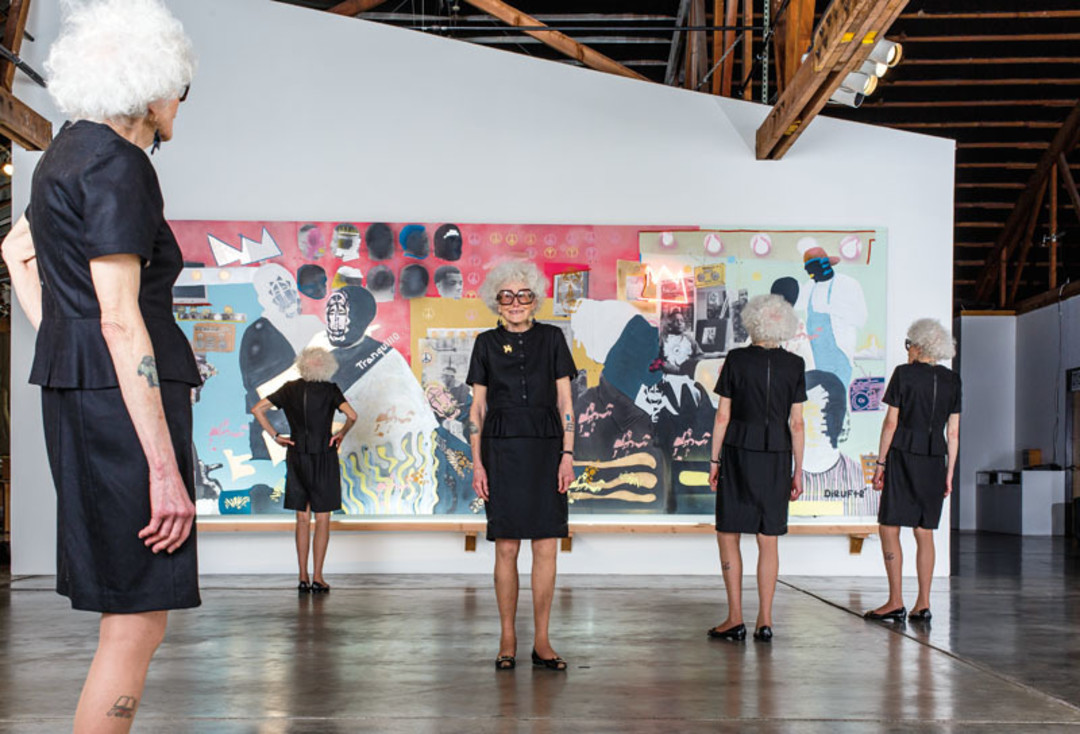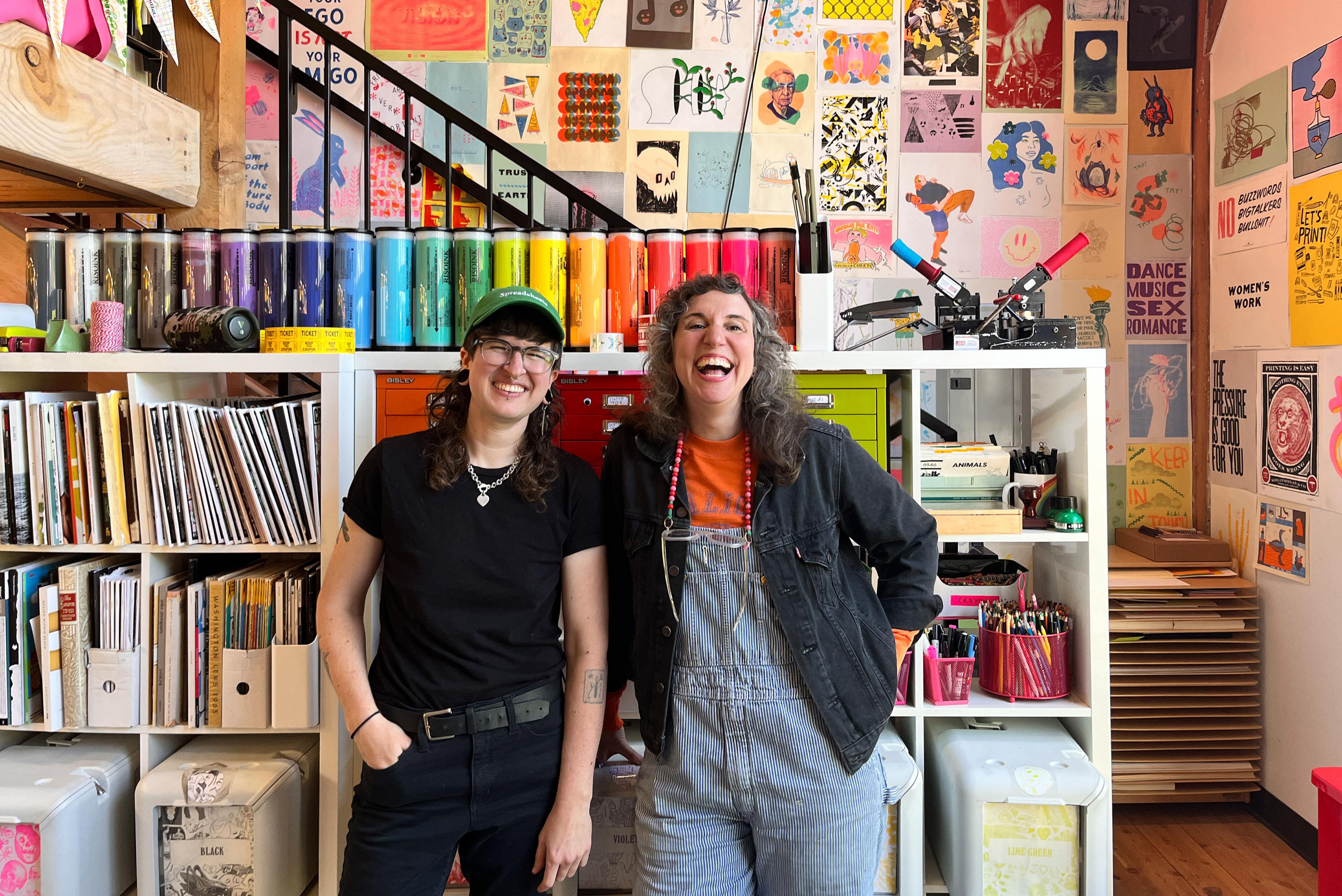Glenda Goldwater, Portland's Bon Vivant

The omnipresent Glenda Goldwater (no relation to Barry) at Disjecta’s Portland2014 Biennial, viewing Modou Dieng and Devon A. VanHouten-Maldonado’s Tranquillo
Image: Stuart Mullenberg
After five decades as a public librarian—in San Francisco and, before that, for the US Army in Germany and her beloved France—she has become Portland’s most noticeable art-world presence, a self- and well-described bon vivant. In her modest Southeast Portland apartment, covered baseboard to ceiling with posters and art, Goldwater answered the question many Portland culture aficionados have long wanted to ask: who is she?
“Howard Roark laughed.” That’s the first line. I used to read Ayn Rand’s The Fountainhead once a year, to my detriment. Howard Roark didn’t take any bullshit from anyone, and I became fairly arrogant in my attitudes. I’ve softened. Oh yes, for sure. And I didn’t share Ayn Rand’s politics. But I read that book probably 20 times for that one character. He was willing to stand up for his beliefs.
I’m a Unitarian. I proofread the Sunday bulletin. I volunteer at the museum’s Rental Sales Gallery twice a month. I’m a member of the Contemporary Arts Council. I go to First Wednesday art openings. I belong to the Hollywood Senior Center. I go to Portland Playhouse, Artists Repertory Theatre, the symphony, and things like Third Angle New Music Ensemble. I guess you could say I have catholic taste. Culture is just part of me. My taste has changed. When I first started collecting, I bought things that were too artsy-craftsy. Getting to know the artists and gallery owners, you just realize you’ve got to evolve.
Portland is a village. I don’t think I’m that recognizable. I just think it’s Portland.
My father enlisted in the navy. That was his career. He was covered in tattoos. He would be absolutely horrified to know that I have tattoos. Mine all have to do with France: the car I owned there, the French flag and the motto of the Revolution, a dinner plate with a wine glass and menu on the back of my neck, books and cats. I got them since I came to Portland. I want to make sure when I get to heaven, God will put me with the French and not the Americans.
Five years ago, I quit driving and donated my car to the classical music station. My car was very well known: covered—and I mean, covered—with political bumper stickers. I always said I could never have an affair in Portland: if I parked my car in my lover’s driveway, the whole city would know. My husband bought that car for me. So when the truck came to haul it away, I stood there and bawled.
I’ve had unhappy things happen to me, but I’ve had a very interesting life. It’s a cliché, but I’m comfortable in my skin. I do a lot of walking, so physically, I’m probably in as good shape as I’ve ever been in my life.
What’s most surprising about getting old? People say, “Oh, when I’m your age,” and I want to slug ’em. It’s condescending. The biggest misperception is that you become this old person. “Can I help you?” “How you doing?” Aging has given me a greater sense of who I am. And I don’t want people to think that, just because I can’t remember things, I’m senile. I don’t think people give enough credit to people of my age: that we’re normal.
I tried not to swear in this interview. “Fuck” has become the new “darn.” I say it all the time, sometimes places where I shouldn’t.




